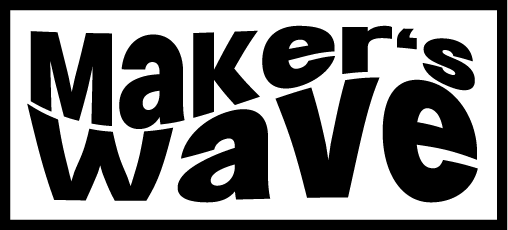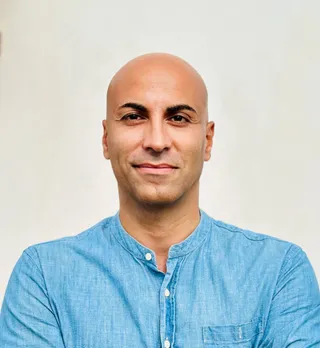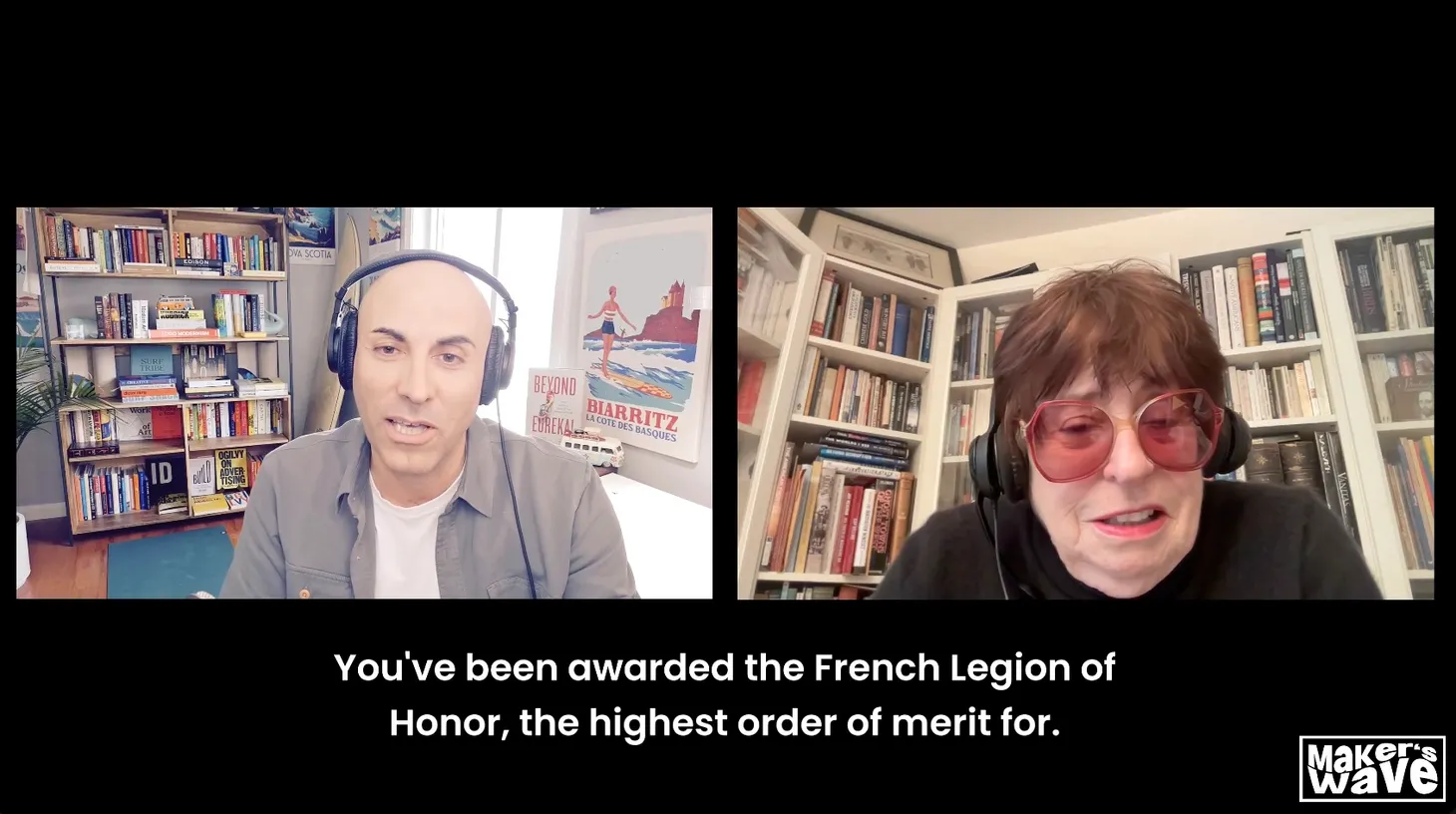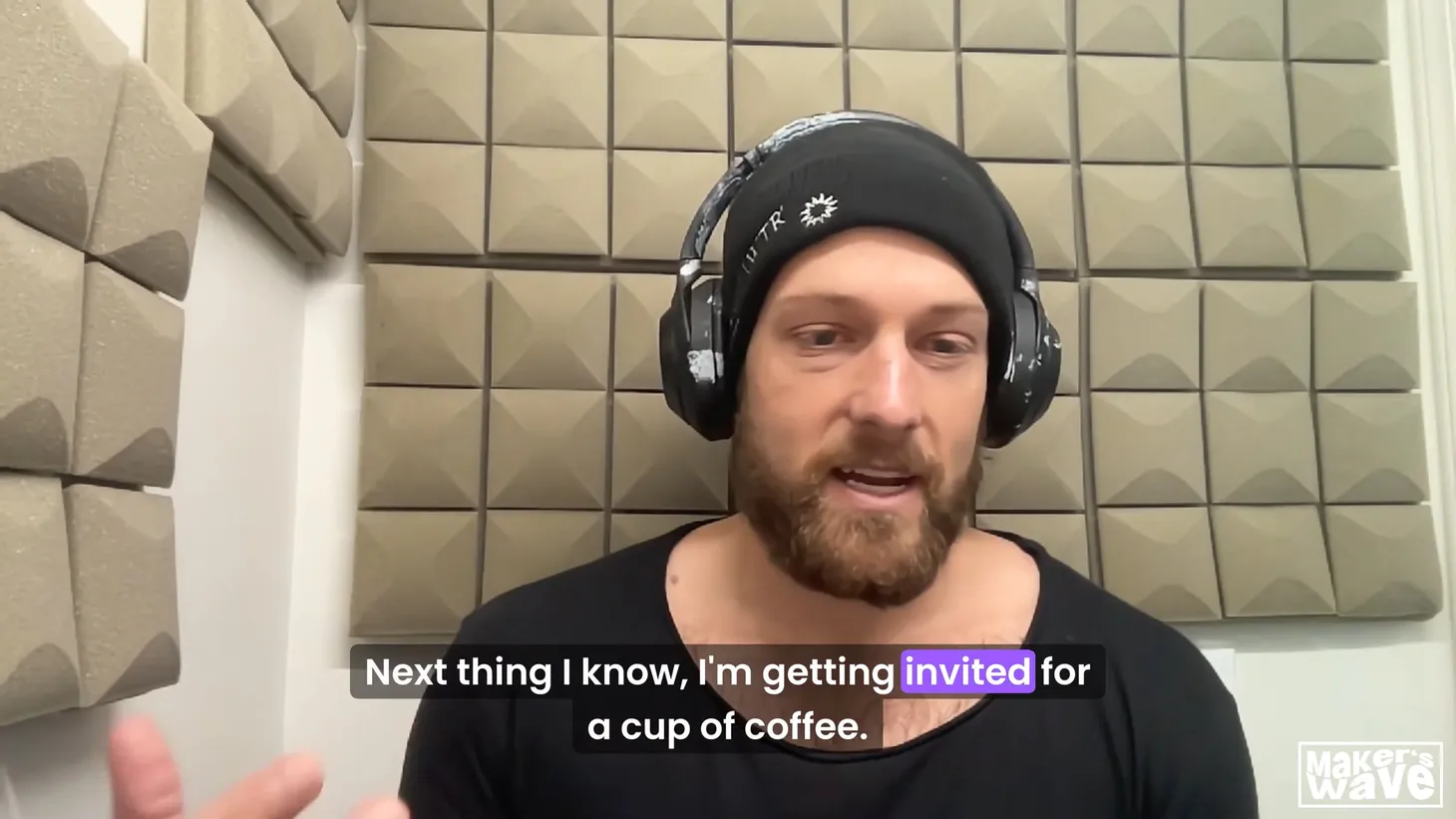Living in the future w/ sci-fi author, Ken Liu
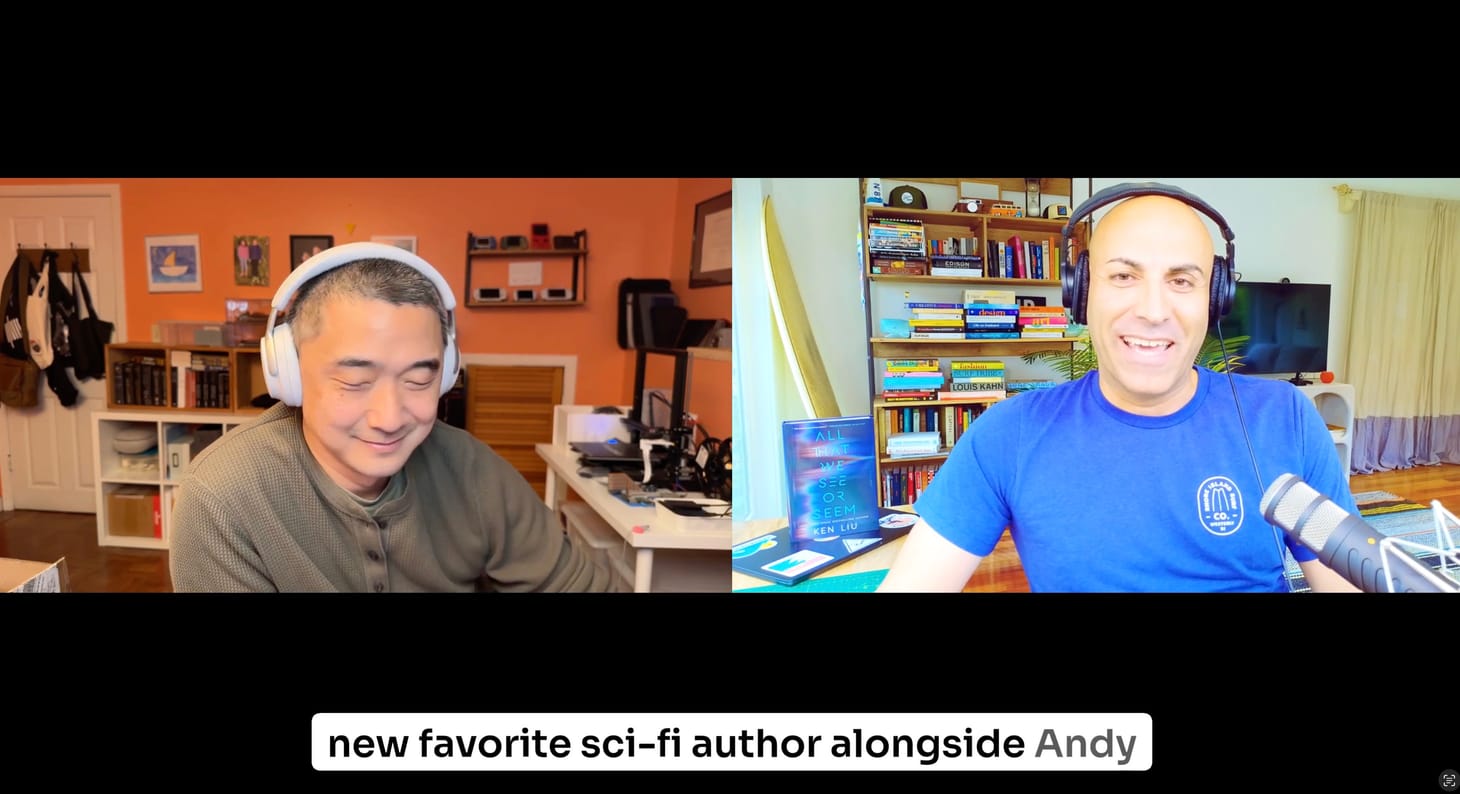
A must-watch/listen conversation for startup builders with my new favorite sci-fi author about AI, data sovereignty, and why jobs aren't required
I love plausible science fiction. It gets my brain going in ways nothing else can. I imagine building things for a future world that feels real. That's why I always loved Andy Weir books like The Martian. And why I love the "living in the future" concept VC Mike Maples discussed in his book, Pattern Breakers.
And that's why I adored NYT best-selling author Ken Liu's new near-future sci-fi book All That We See Or Seem where he imagines a world where the hero of the story is using custom personal AIs. The whole thing is a playground if you're a startup builder. Your brain will be going a million miles an hour with ideas.
I emailed him for an interview and he was so gracious to say yes.
Listen on: Apple Podcasts | Spotify | RSS Feed
Chapters:
00:00 Ken Liu's Journey to Sci-Fi Writing
02:22 Exploring the Near Future in Sci-Fi
05:05 Technological Innovations in 'All That We See or Seem'
11:20 Data Sovereignty and Personal AI
19:29 The Role of Dreams in Creativity and Consciousness
24:10 The Nature of Human Authenticity in the Age of AI
31:53 The Future of Work: Jobs and Meaning
38:42 Designing for the Future: Advice for Builders
44:02 Imagining Future Professions and Technologies
Ken isn't your typical sci-fi writer. He spent years as a programmer, then became a corporate lawyer, then worked as an expert witness in high-tech cases. Only five years ago did his writing career get big enough that he could quit his day job and write full-time.
And here's the thing: he loved all those jobs. "I do not hate my day jobs at all," he told me. "I enjoy them immensely. It's just that I like writing even more."
That tech background shows in his writing. His new book feels like it could happen next year. I told my wife after reading a few chapters: this is what the future is really going to be like.
We're building things we don't understand
Ken spends a lot of time talking to startup founders and reading research papers. Right now, he says, we're in a weird moment in tech history.
"Sometimes the engineers figure out how to build something and then the science has to catch up because we built something and it works, but we're not entirely sure why or how it works."
That's where we are with AI. The transformer architecture and large language models work way better than anyone predicted. Scientists are still arguing about why.
"This is one of the most exciting speculative moments in my life, honestly," Ken said.
The fight for your data
The book's main character, Julia Z, is a hacker who's obsessed with data sovereignty. She built her own AI system called Talos that runs on hardware she controls. No cloud. No tracking. All her data stays with her.
I asked Ken if regular people will actually care about this stuff. Right now everyone's dumping their data into ChatGPT, Claude, and Perplexity without thinking twice.
Ken thinks people will start caring. For two reasons.
First, people will realize that cloud companies don't have their best interests at heart. Right now, most people are comfortable sharing secrets with AI chatbots. They figure their data gets lost in the noise of millions of other users.
But Ken thinks a few high-profile data leaks will change that. Stories of employees misusing data. People getting in trouble because of what they told an AI. That'll wake people up.
"The interest of the large cloud companies and individual users are not always aligned. In fact, I would say often they're not aligned."
Plus, the really useful AI applications require the AI to watch you all the time. People are already uncomfortable with Amazon devices listening to their conversations.
If you want AI that truly understands you and helps you improve your skills, you need to give it access to everything you do. That only works if you control the data.
The second reason people will care is money. Your professional skills are about to become intellectual property. And there's going to be a fight over who owns them.
"Over time as AI gets adopted, there's gonna be a conflict between employers and skilled workers. Employers will want AI use to basically trap as much of the employee expertise within the business as possible."
Think about it. Right now, lawyers carry form documents between firms. Programmers take their code snippets and best practices with them. That knowledge is portable.
But what happens when all that expertise gets trained into your company's AI? When you leave, you can't take it with you. Your skills stay behind.
"Employees will want data sovereignty over their own skills so that the employer may have the use of them while they're there but not over time," Ken said. "They will not want to have their employer basically hold their skill hostage."
This isn't some distant future problem. It's happening now.
Why do we assume jobs are required?
This is where the conversation got really interesting.
I asked Ken about the whole AI-taking-jobs thing. Everyone's worried about unemployment. But Ken flipped the question.
"Why do we think jobs are required? I mean, jobs have not always existed and why do we assume that jobs are always required?"
Our hunter-gatherer ancestors worked maybe 16 hours a week. The rest of the time they did other things. The 40-hour workweek is a modern invention. It's not some biological requirement.
"When warehouses are deploying computer systems to tell workers exactly where to go and how much time they have to go and treating them basically as robots, this is not a job with dignity. This is not a job that treats humans as humans. This is a job that reduces humans to machines."
Ken's point: we're already in a bad situation. Lots of people work 70-80 hours a week and still can't make a living. Preserving those jobs won't solve anything.
"The real issue is a crisis in lack of meaning. So many of us are deeply depressed because jobs in the modern world often are meaningless."
Build things that make people more human
Ken's advice for anyone building products with AI is simple but powerful:
"You have to build things that make people more human rather than make them more into machines."
He writes Python scripts sometimes. He'll ask AI to help. Sometimes it works great. Sometimes it's lazy and he has to check the documentation anyway.
"One of the things that's really annoying about some of these AI tools is that they're incredibly lazy. These companies have to minimize the amount of compute devoted to every request. So there's a tendency for these models to do the bare minimum."
But when you're building something, you need to ask yourself: does this tool allow people to become more human or does it reduce them to machines?
"Are you actually satisfying a deeply felt need in our species? Are you actually serving your customers in a way that respects their dignity and their agency and allows them to dream into being who they are?"
The goal should never be to build something cheap and quick to make money.
One thing that gives him hope
I asked Ken what in AI gives him the most hope right now.
"The fact that the protein folding problem has been solved essentially by using the same machine learning techniques that power large language models."
This was thought to be unsolvable. Or at least beyond what our computers could handle. But we solved it using the same tech behind ChatGPT.
"We are barely seeing the benefits of that now and I think in the future we will see a lot more of it."
What's next
Ken's next Julia Z book comes out in 2027. Before that, he's releasing a new short story collection in 2026 called "The Passing of the Dragon and Other Stories."
If they ever make a movie, Ken hopes Julia Z launches a new actress's career. Someone unknown. That would be perfect.
"All That We See or Seem" is out now. If you care about where tech is heading, you should read it.
Maker's Wave Newsletter
Join the newsletter to receive the latest updates in your inbox.
